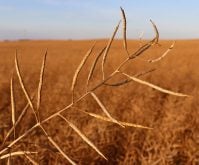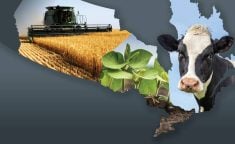Rural municipalities were winners amidst a somewhat mundane provincial budget for the agriculture sector.
Why it matters: Agricultural issues were not front and center in the 2023 budget, although a few line items are worth noting.
In this year’s budget, tabled March 7, the province thawed a seven-year freeze on municipal operating funding, increasing it to $217 million from $170 million. A further $23.4 million was added to the municipal strategic infrastructure basket.
Read Also

Students push for Manitoba road upgrades
Manitoba’s lack of higher-rated RTAC roads creates irritating highway detours and weight restrictions for farmers, University of Manitoba students told KAP.
“As inflation has significantly impacted municipal budgets over the last seven years and municipalities are not permitted to run deficits, the additional $47 million to the municipal operating funding basket provides a timely infusion to local councils,” said Kam Blight, president of the Association of Manitoba Municipalities (AMM).
The Keystone Agriculture Producers called the support for rural communities a highlight, noting promised capital investments in rural hospitals and funds to expand the number of veterinarians.
The province announced $1.4 billion in capital health projects, including new hospitals in Neepawa and Portage la Prairie, and expansions in several hospitals including those in Virden, Souris, Killarney and Arborg.
The budget also made good on a previous pledge to increase the intake of Manitoba students at the Western College of Veterinary Medicine to 20 per year from 15. The line item accounted for nearly $540,000.
In a March 8 release, KAP praised the province for increasing the Education Property Tax Rebate to 50 per cent from 37.5 per cent, as it had promised.
“KAP will continue our calls for the complete removal of the education property tax on all farm property, ensuring optimal service levels in rural areas, [and] the development of an education funding model that works for rural Manitobans,” the organization said.
Under the new Sustainable Canadian Agriculture Partnership (SCAP), Manitoba will get $221 million to spend on its ag industry—of which the province contributes 40 per cent.
The province pledged what it said is its largest-ever contribution to AgriInsurance at $103.1 million, reflecting an expectation of higher premiums this year. It also bumped up the maximum loan limit by $500,000, raising the ceiling to $4.75 million as of April 1.
“It is important that MASC’s lending products remain relevant to producers,” a MASC spokesperson told the Co-operator.
Nearly $400,000 was pledged to support veterinary diagnostic testing and disease analysis through the new Laboratory Information Management System. The province also said it would enhance staffing at the Veterinary Diagnostic Services Laboratory “to support higher volumes of animal disease testing and the provision of timely results.”
“Further investment in the Laboratory Information Management System is crucial, as it is an important data analysis tool that can [help] our sector and others quickly contain the spread of disease,” said Manitoba Pork general manager Cam Dahl.
“This investment, paired with increased capacity at Veterinary Diagnostic Services, will help enhance the diagnostic and surveillance monitoring capacity of our sector as a whole, particularly given that effective disease response is measured in hours, not days,” he said.
The province also promised $2.5 million to the Food Development Centre in Portage la Prairie “to support the continued implementation of the Manitoba Protein Advantage, plant innovation and product commercialization.”
















